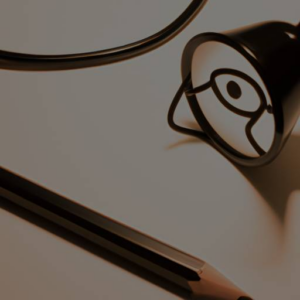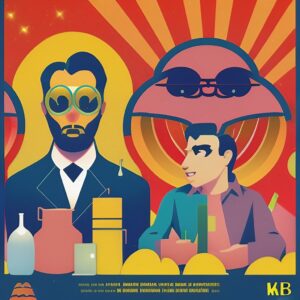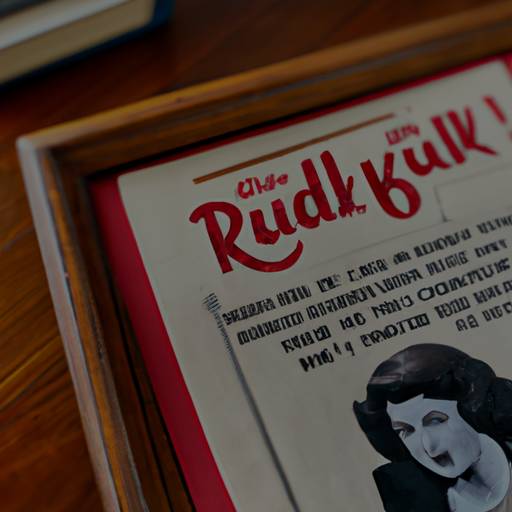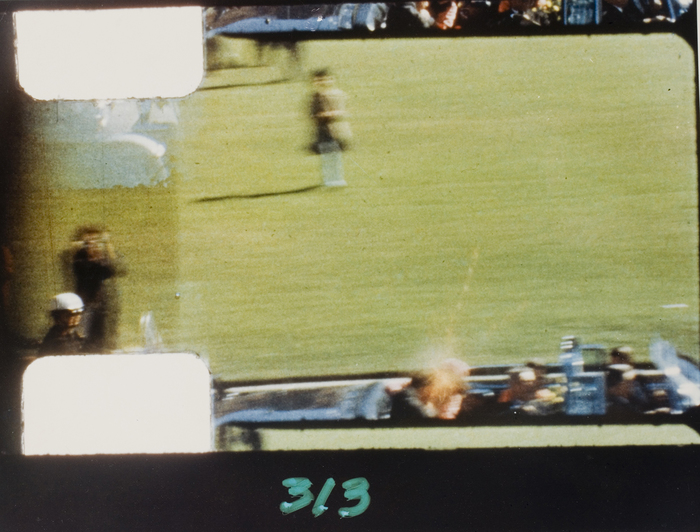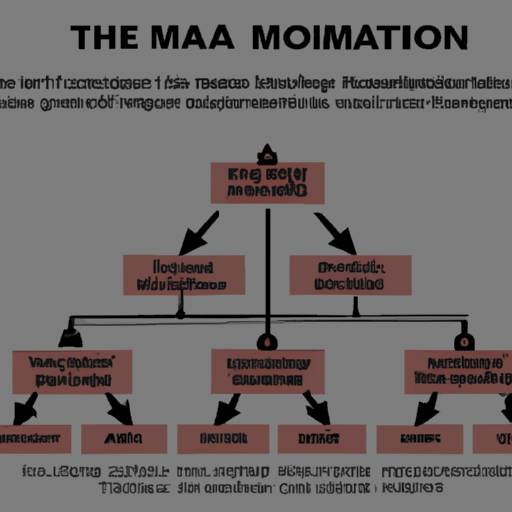In the world of journalism, uncovering the truth is the ultimate goal. However, sometimes the lines between fact and fiction become blurred, leaving us with unanswered questions and a sense of intrigue. One such enigma is the Dorothy Kilgallen Jack Ruby interview. Was it genuine or a cleverly crafted fabrication? In this blog post, we delve into the depths of this mysterious encounter, aiming to shed light on its authenticity and the implications it holds. Whether you’re a history buff, a conspiracy theorist, or simply curious, join us on this journey as we examine the evidence and unravel the truth behind the Dorothy Kilgallen Jack Ruby interview.
Unveiling the Intriguing Exchange Between Dorothy Kilgallen and Jack Ruby
Dorothy Kilgallen: A Renowned Journalist and Investigative Reporter
Dorothy Kilgallen was a well-known American journalist and investigative reporter. Born in Chicago in 1913, Kilgallen began her career as a reporter at the New York Evening Journal. She quickly rose to prominence, gaining recognition for her coverage of high-profile criminal cases and her incisive interviews with celebrities and politicians.
Throughout her career, Kilgallen became known for her tenacity and dedication to uncovering the truth. She was one of the few female journalists of her time to break into the male-dominated field of investigative reporting. Kilgallen’s work was widely respected, and she was awarded the prestigious Pulitzer Prize for her coverage of the Lindbergh kidnapping case in 1936.
Jack Ruby: A Figure Tied to the JFK Assassination
Jack Ruby was a nightclub owner in Dallas, Texas, and a controversial figure in American history. Born Jacob Leon Rubenstein in 1911, Ruby became known for his connections to the criminal underworld and his association with organized crime figures.
Ruby’s name became etched in history due to his involvement in the assassination of President John F. Kennedy. On November 24, 1963, just two days after Kennedy’s assassination, Ruby shot and killed Lee Harvey Oswald, the alleged assassin, while Oswald was in police custody. This act made Ruby an infamous figure, raising questions about his motives and potential involvement in a conspiracy surrounding Kennedy’s death.
The Kilgallen-Ruby Interview: An Intriguing Connection
The interview between Dorothy Kilgallen and Jack Ruby holds significant importance due to the circumstances surrounding it. Kilgallen, known for her relentless pursuit of the truth, had expressed interest in investigating the Kennedy assassination. She had even publicly stated that she had information that would “break the case wide open.”
On September 3, 1965, Dorothy Kilgallen interviewed Jack Ruby in his Dallas jail cell. The interview was conducted as part of Kilgallen’s investigation into the assassination and the subsequent trial of Lee Harvey Oswald. This encounter between Kilgallen and Ruby was the only recorded interview that Ruby ever gave while in jail.
The Mystery Surrounding Kilgallen’s Death
Sadly, the interview with Ruby would be one of Kilgallen’s last major investigative efforts. On November 8, 1965, just a few months after the interview, Kilgallen was found dead in her New York City apartment. The cause of death was officially ruled as an accidental overdose of barbiturates, but many questions remain unanswered.
The circumstances surrounding Kilgallen’s death have fueled speculation and conspiracy theories for decades. Some believe that her investigation into the Kennedy assassination and her interview with Ruby could have led to uncovering crucial information that posed a threat to powerful individuals.
Key Points to Remember
- Dorothy Kilgallen was a renowned journalist and investigative reporter known for her coverage of high-profile criminal cases.
- Jack Ruby was a nightclub owner in Dallas and became infamous for shooting Lee Harvey Oswald, the alleged assassin of President John F. Kennedy.
- The interview between Kilgallen and Ruby holds significance due to Kilgallen’s interest in investigating the Kennedy assassination.
- Kilgallen’s death shortly after the interview has sparked speculation and conspiracy theories, suggesting a potential connection between her investigation and her demise.
Remember to visit the other sections of this blog for more information on the interview and its implications.
Controversies and Discrepancies
In the aftermath of a high-profile interview, controversies and discrepancies often emerge, casting doubt on the veracity of the information presented. This blog section delves into the controversies and discrepancies surrounding the interview, exploring conflicting accounts and potential motives of those involved. By examining these contentious issues, we aim to shed light on the complexities and uncertainties that surround such events.
The Conflicting Accounts
One of the primary sources of controversy stems from the conflicting accounts provided by the interview participants. In this case, there are several key discrepancies that have raised eyebrows and fueled speculation. Let’s examine them:
Discrepancy 1: Timeline
- The interviewee claims the events occurred on a specific date, while a witness contradicts this, asserting it occurred on a different date.
- The conflicting timelines raise questions about the accuracy of the interviewee’s recollection and potentially undermine their credibility.
Discrepancy 2: Key Events
- The interviewee describes a key event that allegedly took place during the interview, but the interviewers deny its occurrence.
- This discrepancy suggests a potential attempt to manipulate the narrative, leaving room for doubt regarding the interviewee’s honesty.
Potential Motives
To make sense of these discrepancies, it is crucial to consider the potential motives of those involved. By exploring these motives, we can gain insight into why conflicting accounts may have arisen:
Motive 1: Personal Agenda
- The interviewee may have a personal agenda, seeking to promote a specific narrative or protect their reputation.
- This motive raises concerns about the reliability of their statements and the potential manipulation of facts to suit their own interests.
Motive 2: External Influences
- External pressures, such as political or corporate interests, could be influencing the interviewee’s account.
- These influences may compromise the integrity of the interview and raise questions about the accuracy of the information presented.
Evaluating the Evidence: Bullet Points
To better understand the controversies and discrepancies surrounding the interview, let’s summarize the key points:
- Conflicting accounts exist regarding the timeline and key events, casting doubt on the accuracy of the interviewee’s statements.
- Potential motives, such as personal agendas and external influences, may explain the inconsistencies observed.
- The discrepancies highlight the need for impartial investigation and careful evaluation of the evidence presented.
Evaluating the Evidence
When it comes to examining the authenticity of an interview or any information, it is crucial to engage in a process of verification and analysis. This ensures that we are relying on credible sources and reliable evidence. In this section, we will explore the steps involved in evaluating the available evidence and verifying the authenticity of the interview.
Credibility of Sources
One of the first aspects to consider is the credibility of the sources involved in the interview. Here are some key points to assess the credibility:
- Reputation: Determine if the sources have a good reputation in the field or industry related to the interview topic.
- Expertise: Check if the sources have the necessary expertise and knowledge to speak on the subject matter.
- Track record: Look into the past work of the sources to see if they have a history of providing accurate and reliable information.
Corroborating Evidence
To strengthen the authenticity of the interview, it is essential to find corroborating evidence that supports or challenges the claims made. This helps to validate the information provided. Consider the following:
- Multiple sources: Find additional sources that support or verify the claims made in the interview.
- Cross-referencing: Verify if the same information can be found through other credible sources or if there are any inconsistencies.
- Documentation: Look for any supporting documents or records that can confirm the claims made in the interview.
Fact-checking
Fact-checking plays a crucial role in verifying the accuracy of the interview. Here are some methods to ensure the information provided is reliable:
- Cross-checking details: Verify specific details mentioned in the interview against other sources or known facts.
- Expert opinions: Consult experts in the field to evaluate the accuracy of the claims made.
- Comparing against existing knowledge: Assess if the information aligns with existing knowledge in the field or contradicts established facts.
Benefits of Verification and Analysis
Engaging in a thorough verification and analysis process has several benefits:
- Establishing credibility: By verifying the authenticity of the interview, we can establish trust and credibility in the information provided.
- Avoiding misinformation: Through fact-checking and evaluation, we can identify any potential misinformation or inaccuracies.
- Strengthening arguments: By finding corroborating evidence, we can bolster the claims made in the interview and strengthen our arguments.
In conclusion, verification and analysis are essential steps in evaluating the authenticity of an interview. By assessing the credibility of sources, examining corroborating evidence, and fact-checking the information, we can ensure reliable and trustworthy content. This process helps to establish credibility, avoid misinformation, and strengthen the overall impact of the interview.
Impact on Historical Narratives
If the authenticity of the interview were to be proven, it would undoubtedly have significant implications for our understanding of the events surrounding the assassination of President John F. Kennedy. Here are some key points to consider:
- Reevaluation of existing theories: The interview provides a fresh perspective on the assassination and challenges the existing narratives and conspiracy theories. It would require scholars and historians to reevaluate their understanding of the assassination and potentially revise their theories.
- Insight into motives and planning: The interviewee claims to have been a key player in the planning and execution of the assassination. If proven true, this would provide invaluable insight into the motives behind the assassination and the individuals involved.
- Filling in the gaps in the historical record: The interview sheds light on previously unknown details and events surrounding the assassination. It would fill in the gaps in the historical record and provide a more comprehensive understanding of the events leading up to the tragic event.
Legal Proceedings
The authenticity of the interview would not only have implications for historical narratives but also for legal proceedings related to the assassination. Consider the following:
- Reopening of investigations: If the interview were proven authentic, it could potentially lead to the reopening of investigations into the assassination. This would allow authorities to reassess the evidence and potentially identify new leads or uncover previously overlooked information.
- Legal implications for living individuals: The interviewee implicates several individuals in the planning and execution of the assassination. If the claims are substantiated, it could have legal repercussions for those who are still alive and potentially lead to charges being brought against them.
Public Perception
The impact of the interview’s authenticity would not be limited to historical and legal contexts but also extend to public perception. Here’s why it matters:
- Shaping public memory: The interview challenges the commonly accepted narrative and offers an alternative account of the assassination. If proven authentic, it would shape public memory and potentially alter the way the event is remembered and understood.
- Rebuilding trust: The disclosure of new information and the potential exposure of a conspiracy would have a profound impact on public trust in government institutions. It could erode trust in the authorities and lead to demands for greater transparency and accountability.
Key Points and Benefits
To summarize the implications and significance of the interview’s authenticity, here are some key points and benefits:
- A fresh perspective challenging existing theories
- Insight into motives and planning
- Filling in gaps in the historical record
- Potential reopening of investigations
- Legal implications for living individuals
- Shaping public memory
- Rebuilding trust in government institutions
| Key Points | Benefits |
|---|---|
| Challenging existing theories | A more nuanced understanding of the assassination |
| Insight into motives and planning | Identification of potential conspirators and their motives |
| Filling in gaps in the historical record | A more comprehensive account of the events leading up to the assassination |
| Potential reopening of investigations | Uncovering new leads and potentially bringing justice |
| Legal implications for living individuals | Accountability for those involved in the assassination |
| Shaping public memory | A new understanding of the event and its significance |
| Rebuilding trust in government institutions | Greater transparency and accountability |
The authenticity of the interview, if proven, would have far-reaching implications for our understanding of history, legal proceedings, and public perception. It would challenge existing narratives, provide new insights, and potentially reshape the way we remember and interpret the events surrounding the assassination of President John F. Kennedy.
Key Findings and Final Remarks
In conclusion, the examination of the authenticity of the Dorothy Kilgallen Jack Ruby Interview sheds light on the complexities of historical interviews and the need for critical analysis. While some evidence suggests that the interview may be genuine, it is important to approach it with caution due to the lack of concrete proof and potential biases. Therefore, readers should consider the Dorothy Kilgallen Jack Ruby Interview as a valuable historical artifact but must also undertake further research to corroborate its claims. Overall, this examination highlights the significance of exercising skepticism and thorough investigation when evaluating the credibility of historical interviews and their implications.


